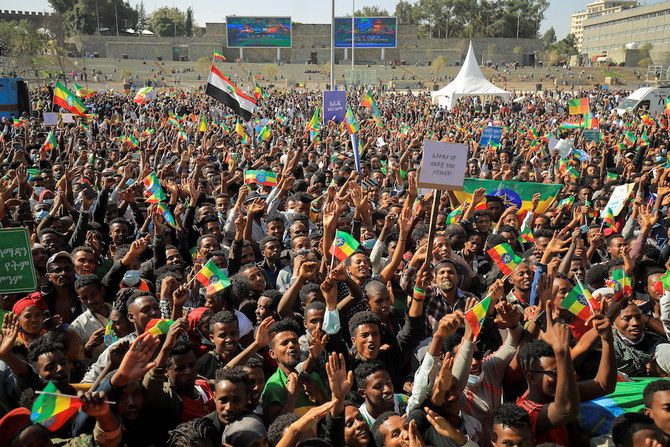Author: GP Editor
Affiliations: Geopolitics Press
Organization/Publisher: Geopolitics Press
Date/Place: August 27, 2021/USA
Type of Literature: Analysis
Word Count: 2950
Link: https://www.geopolitics.press/realism-sovereign-default-geoeconomic-debt-trap-diplomacy/
Keywords: Geoeconomics, US-China, Political crisis, Ethiopia, TPLF
Brief:
Regime change operations and inducement of state collapse have appeared as foreign policy instruments that US foreign policy decision-makers resort to in order to counter China’s rising influence anchored in its geo-economic diplomacy. Designed policies function to prompt fragmentation in states that are at risk of sovereign default, a condition where the indebted nation is unable to pay back its debts or loans to the lender state (China). The purpose is to impact China through loan non-repayment, create hostile nations from collapsed states, with the ensuing regional system becoming obstacles to China’s geopolitical ambitions in the region. In light of this, the article examines the US-China geopolitical rivalries in the Horn of Africa, the respective position and interests, and potential policy directions that each might adopt vis a vis the ongoing political crisis in Ethiopia, the core state of the Horn of Africa region. US foreign policy lacks consistency due to the disproportionate involvement of the Pentagon and Intelligence in foreign policy decision making which has resulted in expensive policies that cost “a high toll of financial and military resources, as well as caused state failure in targeted nations and fomented regional instability”. The US government’s support to armed rebellion in Ethiopia such as the TPLF (Tigray People’s Liberation Front) is a technique to destabilize China’s largest economic and investment partner in Africa, and is not only restricted to the Pentagon, Intelligence Community, and the State Department but includes the American policymaking establishment as proved by its legislature’s passage of foreign aid cut and imposition of economic sanctions over Ethiopia. This indicates that geo-economic tools are being utilized to promote US interests in the Horn of Africa. Moreover, the US wants to support and enable the armed rebellion to attain some military and political advancements, at most to bring regime change, at the least to make Ethiopia unstable and unsuitable for foreign investment and thereby limiting the country’s ability to exploit the Blue Nile and GERD (Grand Ethiopian Renaissance Dam), and to meet the interests of its north African ally, Egypt. While the US emphasizes intra-state violence to weaken Ethiopia as a country and disrupt China’s influence in the region, China may send an expeditionary force to enable the Ethiopian government to defeat Tigrayan rebels. The puzzle will be around what measures the Biden administration will take in case China decides to militarily support the Ethiopian government against the rebel groups led by TPLF.
By: Jemal Muhamed, CIGA Research Associate




